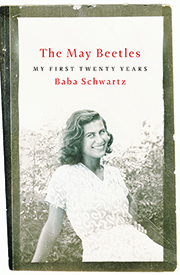The Boy on the Tricycle
Brandl & Schlesinger, $29.95 pb, 256 pp, 9781921556968
The Boy on the Tricycle by Marcel Weyland & The May Beetles by Baba Schwartz
Memoirs of Eastern European children of the 1920s could hardly be more different than this pair. The old age Marcel Weyland describes in The Boy on the Tricycle is a happy outcome for a boy who fled the Nazis. 'Fortunately,' he writes, 'I quite like what I am.' Before World War II, he describes 'a fairly typically, affluent, middle-European and middle-class, and in our case Jewish, household' in the Polish city of Łódź. They were lucky: Marcel's older sister Halina, who worked at the Republika newspaper, foresaw the events of September 1939, and they fled at her urging. Otherwise, 'we would have perished as the bulk of the Jewish population of Łódź, including most of our relatives, perished'. They set off eastwards, escaping Nazi bombs by a combination of luck and Halina's resourcefulness. Another hero was the Japanese consul in Eastern Europe, who devised a scheme to issue Polish Jews with 'transit' visas allowing them to travel to Japan and (relative) safety. By another tortuous series of accidents, the family spent several years in Shanghai.
Continue reading for only $10 per month. Subscribe and gain full access to Australian Book Review. Already a subscriber? Sign in. If you need assistance, feel free to contact us.















Leave a comment
If you are an ABR subscriber, you will need to sign in to post a comment.
If you have forgotten your sign in details, or if you receive an error message when trying to submit your comment, please email your comment (and the name of the article to which it relates) to ABR Comments. We will review your comment and, subject to approval, we will post it under your name.
Please note that all comments must be approved by ABR and comply with our Terms & Conditions.